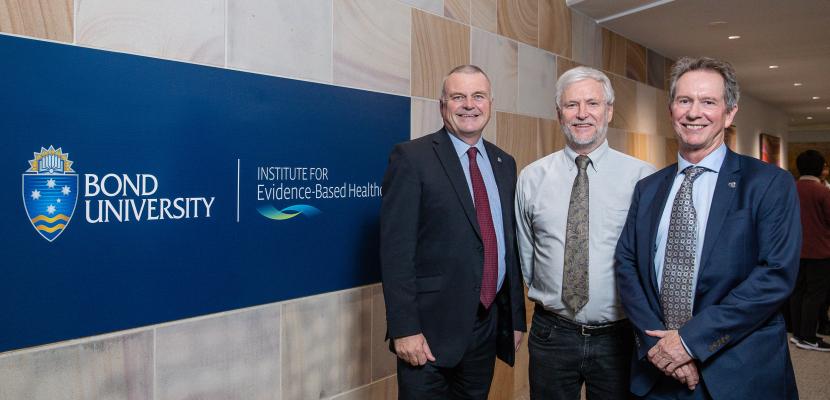Established in 2010 as the Centre for Research in Evidence-Based Practice, the Institute for Evidence-Based Healthcare (IEBH) delivers world-class research, engagement and training that serves as a national and international resource for scholars, clinicians, system leaders, patients and families in the implementation of evidence-based clinical care.
The transition from Centre to Institute in 2019 enabled the IEBH to expand its research function to provide advisory services based on sustainable, evidence-based healthcare and to facilitate research-informed policy and practice.
The effective integration of research into practice contributes to the health and healthcare of Australians, influences health policy and improves global health outcomes.

(From L to R) Professor Tim Brailsford – Vice Chancellor, Professor Paul Glasziou AO – Director of the Institute, Professor Nick Zwar – Executive Dean, Faculty of Health Sciences and Medicine at the Institute Launch in June 2019.

